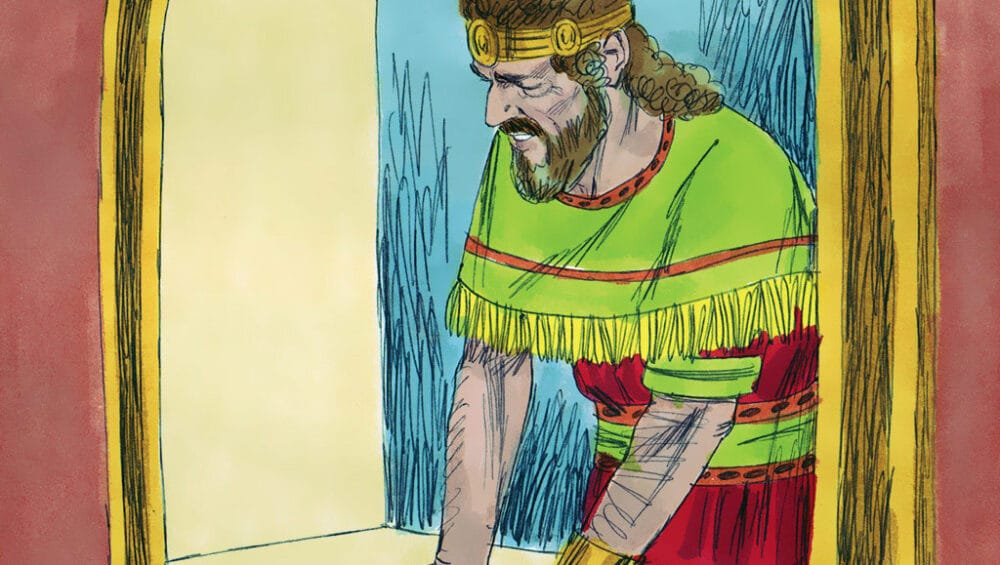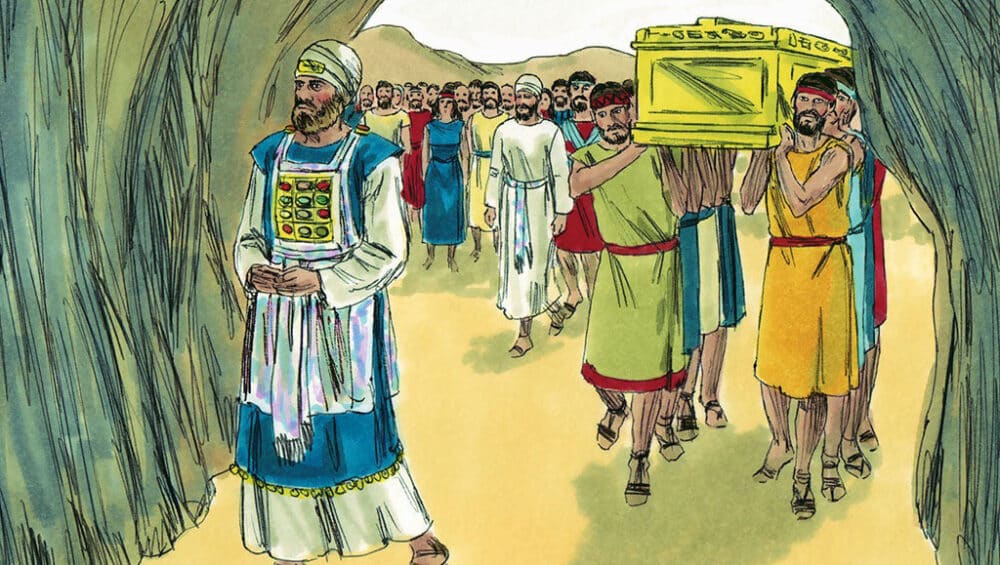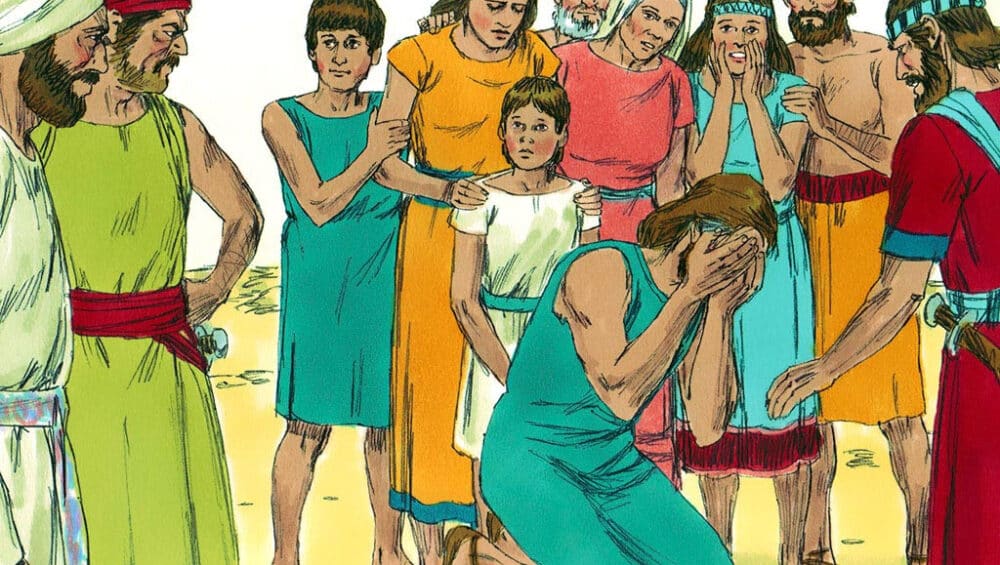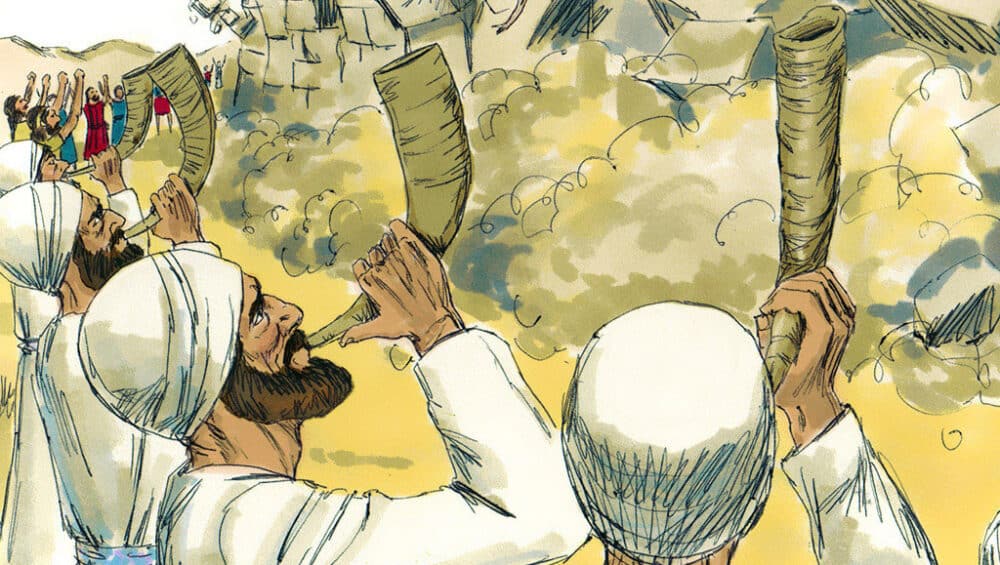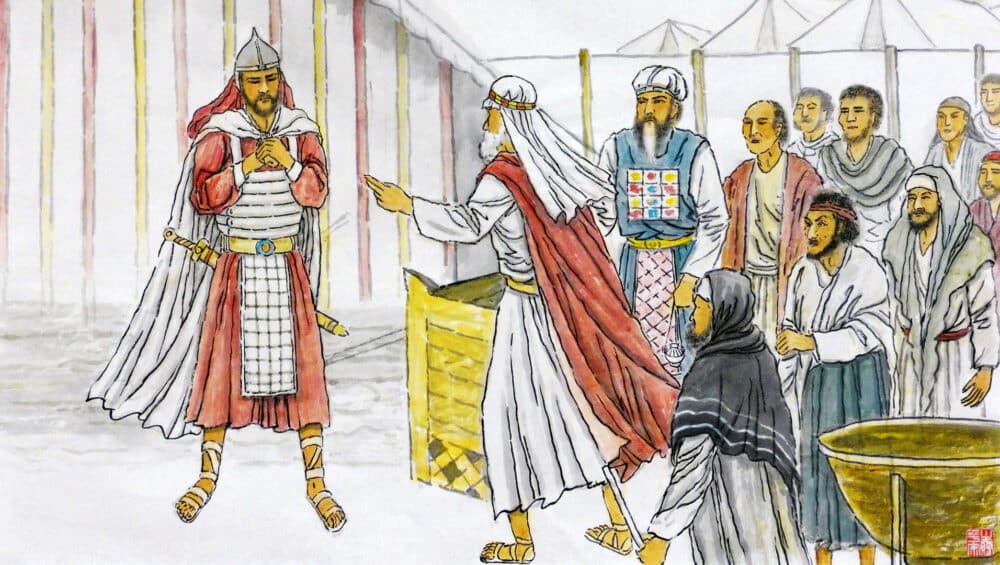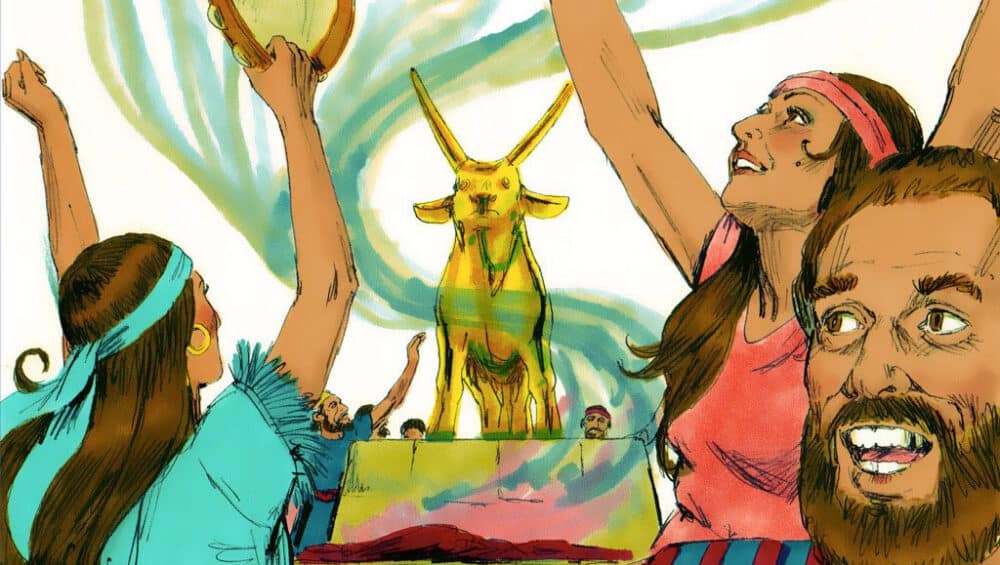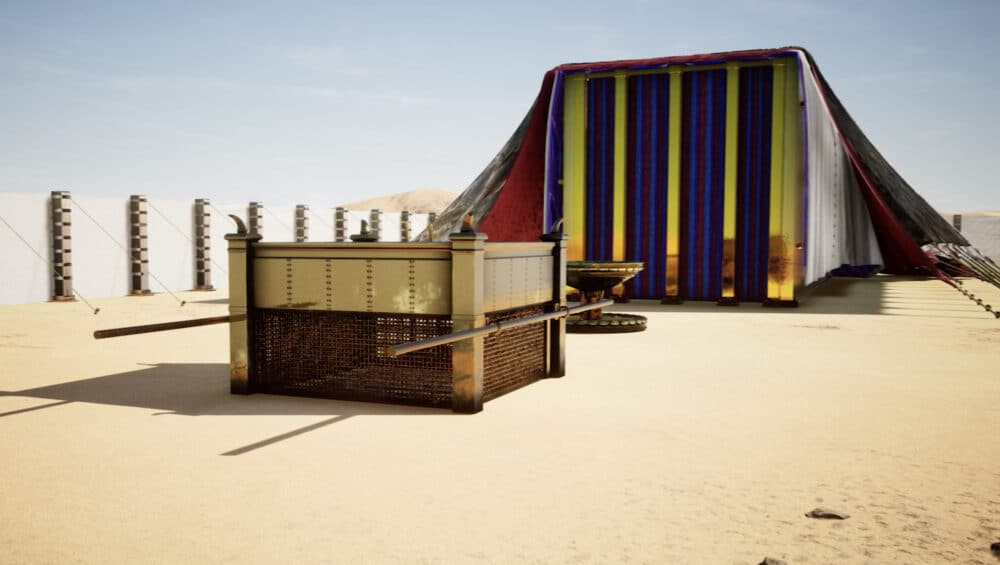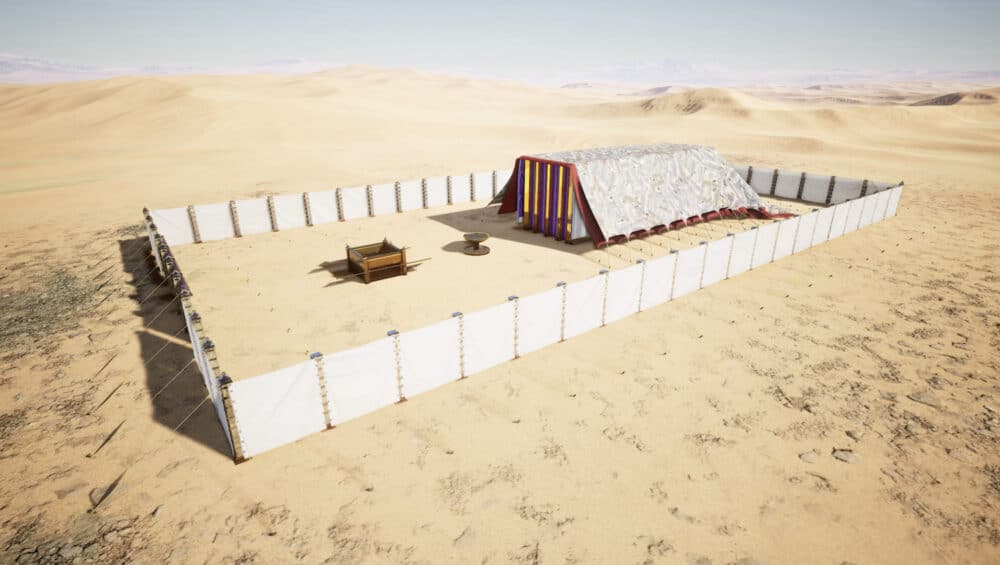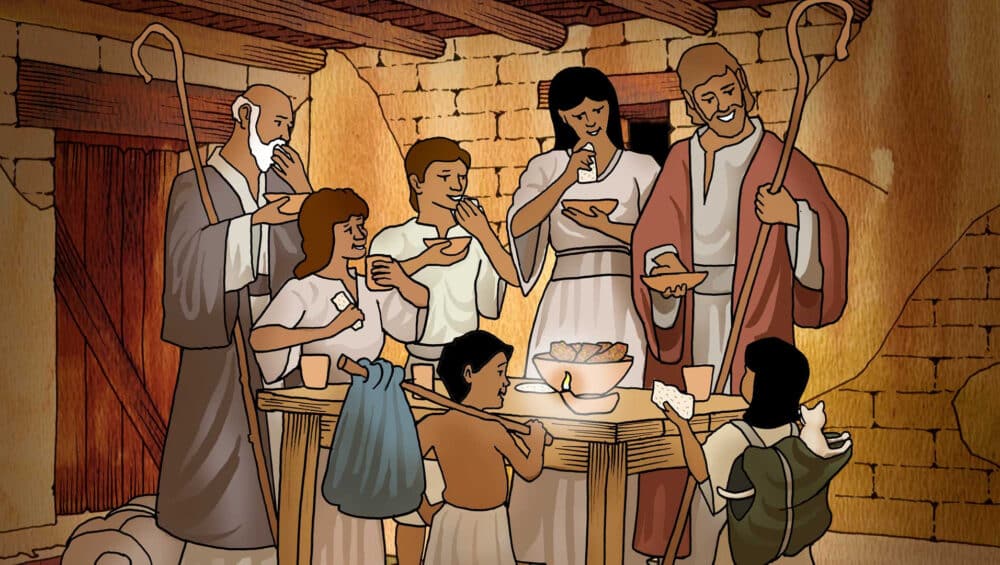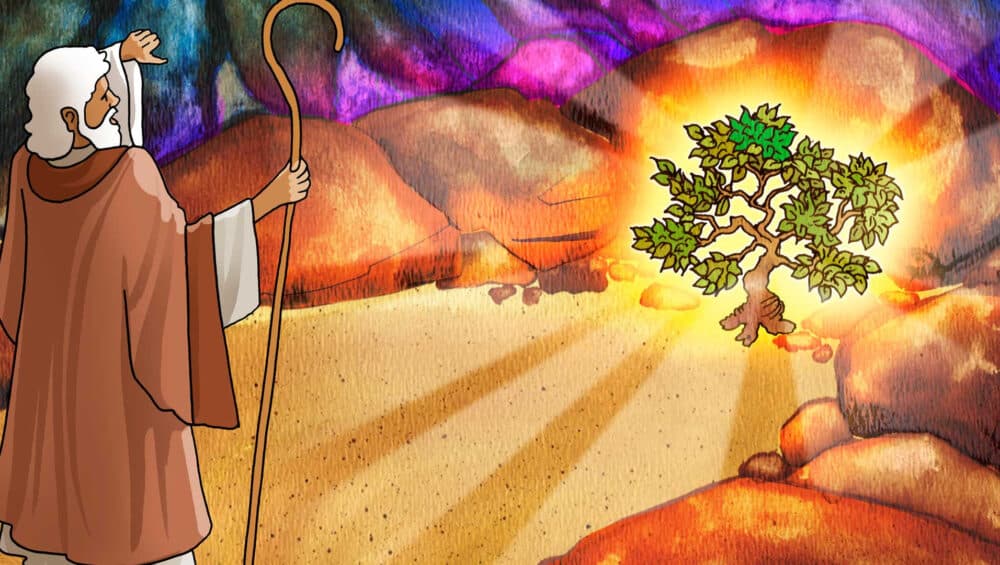Sweet Publishing / FreeBibleimages.org.
Welcome to Livin’ Light’s Bible-In-A-Year challenge of discovering God’s love for us and His purpose for our lives. Here is the format for this great adventure: The daily reading assignment is posted at 5 a.m. After each day’s reading, Leigh An Coplin, the blog host, shares observations and poses questions about difficult passages to Rob Fields, who studied Christian Education at Asbury Seminary and currently teaches Biology in the Orlando area. To start from the beginning, click on 365 Bible Readings and scroll down to Day 1. The reading schedule is taken from The One Year Chronological Bible NLT.
Today’s Reading
— 2 Samuel 7:1-17
— 1 Chronicles 17:1-15
— 2 Samuel 7:18-29
— 1 Chronicles 17:16-27
— 2 Samuel 8:1-14
— 1 Chronicles 18:1-13
— Psalm 60
(1000-996 BC) Click here for a timeline of the entire Bible.
Questions & Observations
O. (2 Samuel 1:2): I am glad that David realized he was treating himself better than the Ark.
Q. (7:11b-16): At first, I thought God was telling Nathan about Solomon. Because, I believe he builds a temple for God. But then, verse 14 lets us know he is talking about Jesus, because it says, “I will be his father, and he will be my son.” So, we know that Jesus is a descendant of David. Right? God also says that if He sins, God will discipline Him, just like a father would do. But, as Christians, we believe in the Trinity. Why would God punish himself? He knows Jesus won’t sin anyway, right? Also, this sounds as if the blessings should continue in Jesus’s descendants. There are thoughts that Jesus was married and maybe had kids. Do we get into this at all in the NT? I think this is a question of curiosity, though, and not important to God’s message? Back up to verse 13. God says to Nathan, “He is the one who will build a house — a temple — for my name. Are we talking about a literal house here, or is this a figure of speech?
A. This is a complicated passage, without a simple explanation. What God is saying in this promise to David is that his line will never fail, but it does NOT say that the line itself will be eternal and we will see how this unfolds at the story moves into Kings. So, because God is speaking of a dynasty of rulers, there are multiple ways to interpret the passage. First, it is Solomon, David’s son, who will build the temple, but it is Jesus — also David’s son and descendent — who will replace the existing temple (that will be destroyed) with an eternal KINGDOM that will never fail. So God CAN rebuke David’s sons when they go astray and rebuke them (and He will), without excluding the possibility of a son, Jesus, that will NOT NEED rebuking. Now in the sense that Jesus is eternal, God is speaking of His plans for an eternal temple/kingdom/house in a metaphorical sense. This sidesteps the ridiculous nonsense about Jesus having children: there was no longer a need for an heir, because Jesus is now eternally alive, having defeated death itself. We will see numerous examples of this type of prophecy throughout the rest of the OT: in one sense it refers to temporal events and people, but in a deeper sense, God is speaking of things of His Kingdom and eternity. It is helpful to approach passages without a singular idea in mind about “what this means:” prophecies regularly have multiple, and correct, interpretations that will only be seen in hindsight.
Q. Why does Chronicles copy 2 Samuel almost verbatim?
A. Because it very likely used Samuel (and Kings) as sources. Part of what is hard to tell from the way this daily reader is setup is places where Chronicles deviates from the story to tell us some other detail that would only occur if we were reading the books straight through. Samuel and Kings tell very important parts of Israel’s history, so it is unsurprising that Chronicles would use this good source material to tell its own version of the story of this period.
Q. (8:1-2): Did God command David to do all this killing? God created the Moabites too. Why does He not value their lives?
A. David is going into combat against nations that are acting as enemies of Israel. And once these nations are defeated, oftentimes some of the people are executed, as in this case, if not all of them. The author does not say whether God ordered the killing, only that He was with David and gave him victory. It would seem unlikely to me that David would have been given these great victories if what he had done was outside of what God desired. This isn’t total war: David is allowing members of all of these tribes to live, even if it is as his servants. Requiring tribute of survivors in military victory was common practice then, and it continues to this day.
Q. (Psalm 60:10): Why is David doubting that God is with him after David and his soldiers have won battle after battle?
A. It looks to me like 60:10 is rhetorical, noting that without God, victory is not possible. So in asking “are you with us, God?” what he’s really saying is, “if you’re not with us, we won’t win.” Perhaps the question is asked in the midst of buildup to a great battle, where moments of doubt and trepidation are natural, even to a seasoned army and king like David. It is hard to say. The other thing I see is the poem’s structure is that it starts in a dark place in verse 1, but moves to one of victory around verse 5. It might be that the writer is repeating this structure — dark to victory — at the end using poetic license. Don’t forget, this is a poem, and we would not hold a poet to the same standards we would expect from a biographer. Considering the genre of writing is crucial for understanding the various writings of scripture.
For further reading: How can a loving God tell His people to kill its enemies? https://bible.org/question/how-could-loving-god-tell-israelites-kill-their-enemies-even-children
Shop: Christian shirts get noticed. Check out these conversation starters: https://livinlight.org/shop/
Tomorrow’s reading
— 2 Samuel 8:15-18
— 1 Chronicles 18:14-17
— 1 Chronicles 6:16-30
— 1 Chronicles 6:50-53
— 1 Chronicles 6:31-48
— 2 Samuel 9-10
— 1 Chronicles 19:1-19

